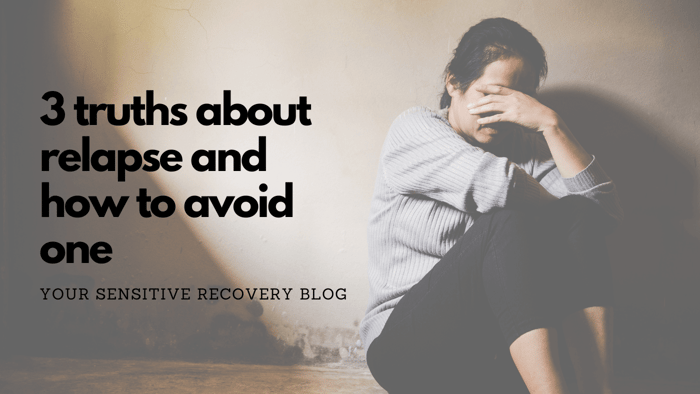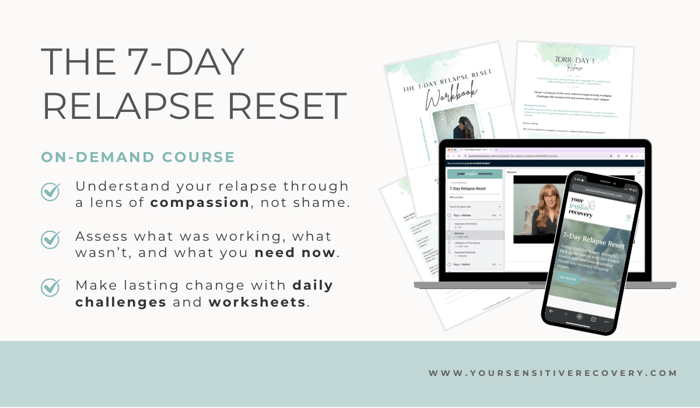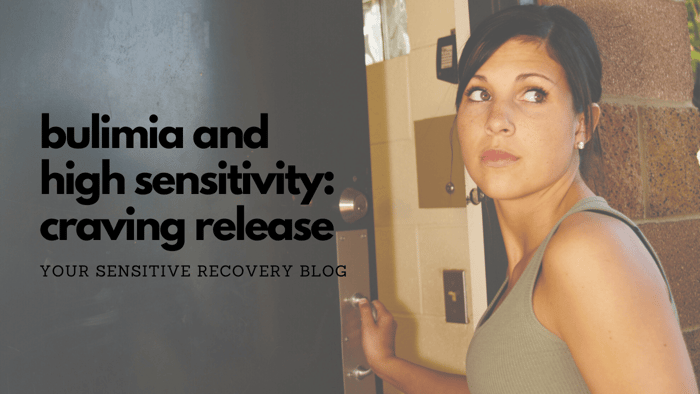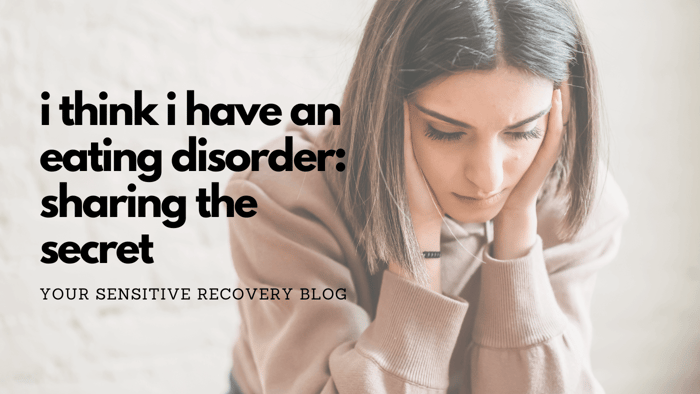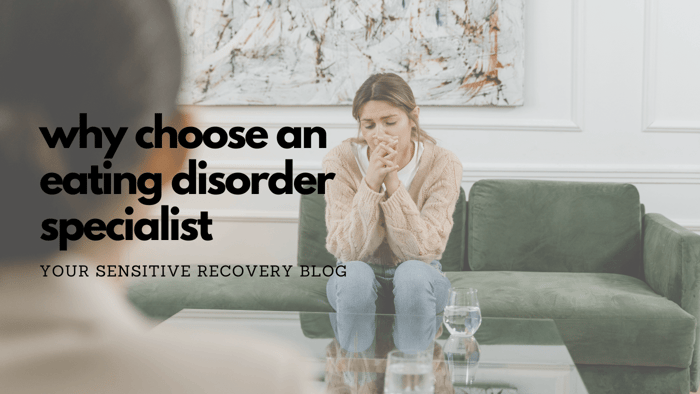Knowledge really is power when it comes to eating disorder recovery. Understanding what relapse is and is not will be an important part of your process. I’d like to share three truths about relapse. They helped me along my journey to recovery and I use them with my clients today as an eating disorder therapist.
Truth #1: Relapse is common, but not inevitable.
It’s true that many individuals with eating disorders will experience one or more relapses during their recovery process…but not everyone.
I worked really hard in my recovery to challenge “all-or-nothing” thinking (and still do to this day). I personally don’t find it helpful to assume that relapse and recovery always go together. I’ve worked with people who have relapsed so many times that they’ve lost count. I’ve also worked with some who began recovery and trucked on through to a fully recovered life without one. And I’ve worked with plenty of people in between.
It IS a Big Deal…
Please don’t fall into the trap of thinking that because something is common, it must not be a big deal. A relapse is a big deal – and nobody is guaranteed to live through one. I’m not using this as a scare tactic – it just happens to be a frightening truth. Even if you struggle to see your behaviors during a relapse as “bad enough”, the hopeless mindset that may grow from it can be damaging enough on its own.
If you think you might be slipping towards relapse, it’s important to get help, immediately.
Did that last sentence make you pause? The inkling that you may be starting to relapse is a pretty good sign you may need a recovery booster shot.
Truth #2: Relapse is a slower process than you may think, and it doesn’t just happen to you.
Deep in my eating disorder, it was incredibly easy to sit back and practically watch myself slide into relapse. I often felt it was inevitable and unstoppable. That couldn’t have been farther from the truth.
It’s important to understand that a lapse is not the same as a relapse. Lapses are singular episodes of backsliding. Specific examples include skipping a snack, engaging in a binge, lying about attending therapy, or exercising off of your treatment plan. Let’s be real – you’re good and familiar with your lapses because they make your eating disorder super happy.
Notice the trend…
Similar to the way an eating disorder progresses, lapses can string together over time, leading to a full-blown relapse. When you’re able to see a lapse as a temporary setback, you can respond from a recovery-focused mindset. This can help you save yourself from further slipping. (Great time to check that “all-or-nothing” thinking again, right?) Label your setback (name it to tame it).
Ask yourself, “What’s the next right step I can take to get back on track?”
Lapses and slips are quite personal and will be specific to your own journey. They commonly occur during what I call red flag situations; people, places, time periods, emotional states, and more, that, for whatever reason, trigger eating disorder thoughts and urges. Identifying and planning your own individual red flags is vital for relapse prevention. Some common examples include: losing your appetite due to being sick, listening to or engaging in “diet talk”, shopping for new clothes, fighting with loved ones, and weighing yourself.
No matter where you are in recovery, take some time to figure out your own personal red flags. Identify ideas for healthy coping when and if you have to face them.
Truth #3. Relapses are great teachers and can often strengthen your recovery.
Have you heard that stumbling blocks and stepping stones are the same things depending on how you use them? It’s similar in eating disorder recovery.
Relapses can show you where you’re vulnerable and can point out areas where you may need more support or containment.
Relapse shines a light.
Your eating disorder-self uses its incredible talent for tall tales. It can convince you that engaging in a disordered behavior just once will be okay. Paying attention, yet not attaching to the story it’s using can be an empowering part of your recovery. Oftentimes, your eating disorder-self will play on your deepest fears and insecurities. Bringing these out into the light (hopefully into a therapy or nutrition session) can be the start of integral change.
No matter where you are in your recovery journey, remember there is support available to help you through a relapse or keep you from entering one.
Your eating disorder is only a part of you – one that can be completely healed. Therefore it will never be stronger than you.
I believe in you, warrior. You’ve got this.
This blog post was originally written for RecoveryWarriors.com
✨ Josie Munroe, LMFT is a licensed therapist and owner of JosieMunroe.com and Your Sensitive Recovery As a recovered clinician and Highly Sensitive Person, she loves supporting others on their journeys to form new, empowered relationships with food, their bodies, and their sensitivity. Join the newsletter for a weekly boost of hope and inspiration. You deserve a recovery that works for you! ✨

